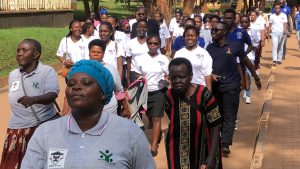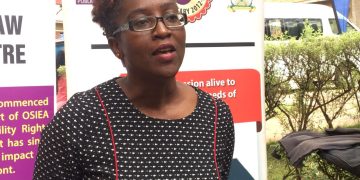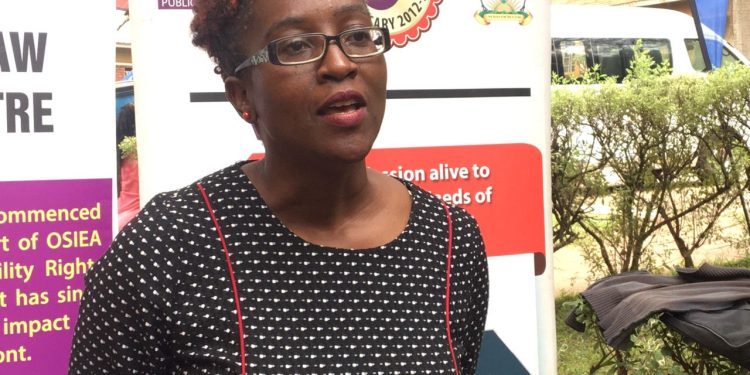Legal scholars have called for the effective implementation of the Persons with Disability Act 2020 to bridge the gaps people living with disabilities face.
The 8-part act was created to provide for the respect and promotion of the fundamental and other human rights and freedoms of persons with disabilities.
Dr. Damalie Nagita Musoke the Coordinator of Disability Law and Rights Center at the Makerere University School of Law, said much as the act bridged the gap and provided many things on inclusion, there are issues of implementation which have challenged its effectiveness.
“The law was passed and beefed, now we want to come together to see that the disability law of 2020 comes to work and is effectively implemented to benefit the people it intended to benefit,” she said.
She noted that in disability inclusion and awareness, there are steps being taken but they are minimal because disability inclusion requires funding which needs the government to put in additional funding.
“Government has done something but the gap now is funding and commitment,” she said at an event held at Makerere University School of Law to mark 10 years of the Public Interest Law Clinic (PILAC) existence.
PILAC is the first legal Clinic established at a University in Uganda.
Through the years, PILAC has been instrumental in transforming the teaching of legal education and legal practice through its experiential learning and strategic litigation strategies embedded in the various units.
These are; the Clinical Legal Education (CLE) programme, Legal Aid Unit (LAU), Network of Public Interest Lawyers (NETPIL) and the East African Network of University Law Clinics (EANULAC).
According to PILAC, their interventions over the past years, have reached nearly 600 students, over 1000 indigent clients and over 200 legal practitioners.
Speaking at the event, the Director Legal Aid Unit at PILAC, Dr Sandra Oryema, noted that these interventions include reviving the teaching of clinical legal education (CLE); Community outreach and mobile legal aid programme (CLAPMOC); provision of legal aid services; research and advocacy in access to justice and social economic rights issues; training of students and legal practitioners on public interest litigation; instituting public interest litigation cases; holding public lectures and conferences, among others.
 She also attributed the success to the support of its various international development partners and strategic national networks.
She also attributed the success to the support of its various international development partners and strategic national networks.
“There could be no better time for the PILAC @10, than this opportune time when it coincides with the Makerere University @100 Anniversary. PILAC’s endeavours, over the years, have been in line with the University mission as a whole,” she noted.
“Consequently, PILAC delights in undertaking the activities below in commemoration of its 10 years journey in contributing to transforming legal education, promoting social and economic rights and enhancing access to justice for all in Uganda and regionally.”
Dr Oryema said that they now want to give back to the community where they have been providing information on rights as well as working on legal issues for the last 10 years.
She also noted that as an organization, they want to change the way people think about the law. “We are re-training the students to think about law in a different way. We want them to think at the social service bit of it.”









